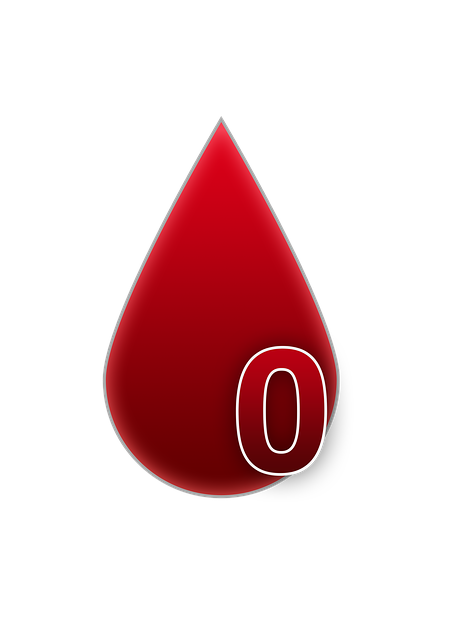In the UK, maintaining optimal health involves regular monitoring of vitamin B12 and cholesterol levels. A UK Vitamin B12 Blood Test is crucial as it helps assess your risk for anemia or neurological issues by determining if your B12 concentration—ideally between 200-900 pg/mL—is within a healthy range. Elevated B12 levels are typically not a concern, but low levels can indicate dietary changes or supplementation may be necessary. Similarly, cholesterol levels must be monitored to prevent heart disease and stroke. The NHS provides accessible testing services for both conditions, enabling early detection and intervention. For those with high cholesterol, a diet rich in fruits, vegetables, whole grains, lean proteins, and omega-3 fatty acids from fish like salmon and mackerel is recommended, along with at least 150 minutes of moderate exercise per week. Vegetarians and vegans should be particularly vigilant about B12 levels and may require fortified foods or supplements to maintain nerve function and red blood cell synthesis. Regular testing and proactive health management through the UK Vitamin B12 Blood Test and cholesterol screening are essential steps in maintaining cardiovascular health and overall wellbeing in the UK.
Understanding cholesterol and vitamin B12 levels is crucial for maintaining health. In the UK, a routine blood test can provide vital insights into your well-being. This article delves into the significance of these tests, offering guidance on interpreting results and making informed lifestyle choices post-analysis. From decoding what your UK Vitamin B12 Blood Test reveals to adapting your diet and exercise regimen accordingly, this comprehensive guide empowers you with knowledge to optimize your health proactively.
- Decoding Cholesterol Levels: A Guide to Understanding Your UK Vitamin B12 Blood Test Results
- The Importance of Regular Blood Tests for Monitoring Cholesterol and Vitamin B12 Levels in the UK
- Lifestyle Adjustments Post-Blood Test: Actionable Steps Based on Cholesterol and Vitamin B12 Levels in the UK Context
Decoding Cholesterol Levels: A Guide to Understanding Your UK Vitamin B12 Blood Test Results

Understanding your UK Vitamin B12 Blood Test results is crucial for maintaining optimal health. This test measures the levels of vitamin B12 in your blood, a vital nutrient involved in the production of DNA and red blood cells, as well as the proper functioning of nerve cells. High levels of B12 are generally not harmful, but deficiencies can lead to anemia and neurological issues. The reference range for vitamin B12 levels varies, but typically, a level of 200-900 picograms per milliliter (pg/mL) is considered adequate for most adults. If your results fall below this range, it may indicate a deficiency that could be addressed through dietary changes or supplementation. It’s important to interpret these results in the context of your overall health and symptoms you may be experiencing. Consulting with a healthcare provider is essential to understand whether your B12 levels require any intervention and to discuss lifestyle adjustments or treatment options available in the UK. Regular monitoring of vitamin B12 levels can help manage any deficiencies effectively, ensuring that your body’s processes continue to operate efficiently.
The Importance of Regular Blood Tests for Monitoring Cholesterol and Vitamin B12 Levels in the UK

In the UK, maintaining optimal health involves a proactive approach to monitoring key biomarkers within the body, two of which are cholesterol and Vitamin B12 levels. Regular blood tests are instrumental in tracking these indicators as they can significantly impact overall well-being. Cholesterol, a waxy substance found in the body’s cells, plays a crucial role in producing hormones, digesting food, and sustaining cell membranes. However, when cholesterol levels are imbalanced, it can lead to health issues such as coronary heart disease and stroke. Consequently, consistent monitoring through blood tests is essential for early detection and management of potential risks associated with high cholesterol. Similarly, Vitamin B12, a vital nutrient, is pivotal for maintaining healthy nerve function and red blood cell formation. A deficiency in this vitamin can lead to anaemia or neurological problems, making regular UK Vitamin B12 Blood Test essential for individuals at risk, including the elderly, vegetarians, and those with certain medical conditions. By identifying any deviations from normal ranges, healthcare professionals can intervene promptly with appropriate dietary adjustments or treatment, thereby enhancing an individual’s quality of life and reducing the risk of associated health complications. The UK National Health Service (NHS) provides accessible blood test services for both cholesterol and Vitamin B12, making it easier for individuals to prioritize their health through regular screening. This proactive stance ensures that early signs of imbalance can be addressed, potentially averting more serious health conditions down the line.
Lifestyle Adjustments Post-Blood Test: Actionable Steps Based on Cholesterol and Vitamin B12 Levels in the UK Context

In the UK, understanding the outcomes of a blood test for cholesterol and vitamin B12 levels can be pivotal in tailoring lifestyle adjustments for optimal health. High cholesterol is a common condition that increases the risk of heart disease and stroke, prompting individuals to adhere to a diet low in saturated fats and trans fats, while incorporating more fruits, vegetables, whole grains, and lean proteins. For those with elevated cholesterol levels post-UK Vitamin B12 Blood Test, it’s advisable to consume foods rich in omega-3 fatty acids, such as salmon and mackerel, which can help reduce the risk of cardiovascular disease. Additionally, regular exercise, aiming for at least 150 minutes of moderate activity per week, can significantly improve cholesterol profiles. On the other hand, vitamin B12 deficiency, often revealed by a UK Vitamin B12 Blood Test, can lead to anaemia and neurological issues; therefore, dietary changes may include fortified foods or supplements to increase B12 intake. Vegetarians and vegans, in particular, should consider these lifestyle modifications, as natural sources of vitamin B12 are primarily animal-based products. Monitoring both cholesterol and B12 levels with regular blood tests allows for informed decision-making and personalised health strategies within the UK context, ensuring individuals can take proactive steps towards maintaining their cardiovascular health and overall wellbeing.
In conclusion, understanding one’s cholesterol and Vitamin B12 levels through routine UK Vitamin B12 Blood Tests is a pivotal aspect of maintaining overall health. The insights gained from these tests empower individuals to make informed lifestyle adjustments, significantly improving their cardiovascular risk profile and energy levels. Regular monitoring, coupled with proactive health measures, can lead to better health outcomes in the UK population. By prioritizing these tests and heeding the guidance provided post-analysis, individuals can take charge of their well-being, making informed decisions to support a healthy life.
